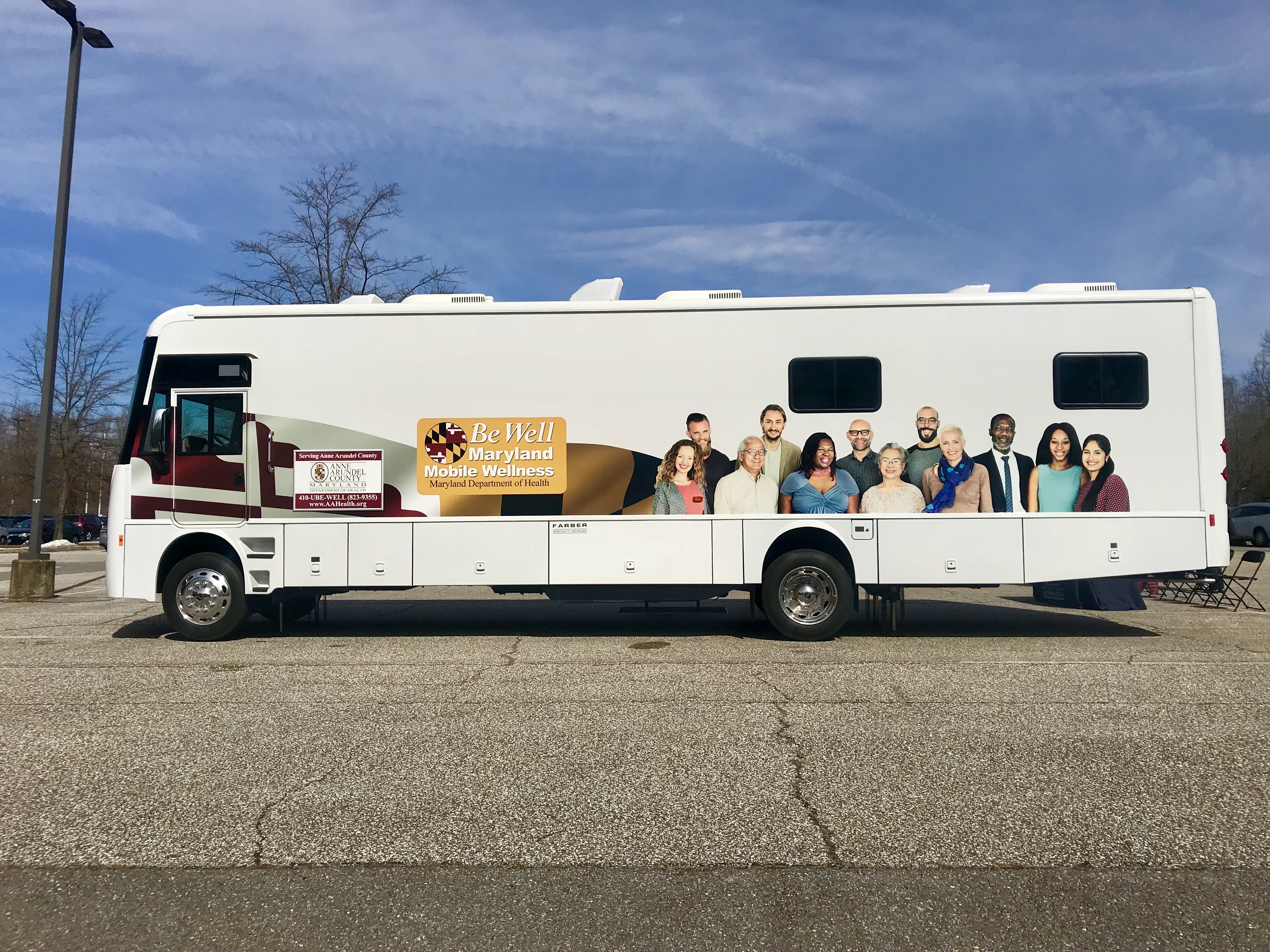ANNAPOLIS, Maryland — To fight back against substance use disorders and the opioid epidemic, Maryland officials unveiled a new mobile wellness vehicle where individuals can seek education, treatment and recovery Tuesday morning.
Fifty percent of individuals in need of treatment for substance use disorders aren’t getting it due to fears of stigma or depression holding them back, said Fran Phillips, deputy secretary of public health services for the Maryland Department of Health.
“This is a lifesaving vehicle that moves people into treatment when they’re ready, and when they’re ready, this is a vehicle that can start them on the pathway to drive home that kind of recovery into wellness,” Phillips said.
The vehicle, a custom Farber 38-foot specialty bus outfitted to the specifications of the state health department, will be staffed by a certified registered nurse practitioner, registered nurse and peer support specialist, along with a driver.
It also features a client intake and reception area, two clinical exam rooms and a private blood work and discussion area.
The vehicle will be open for service on Tuesdays and Fridays from 9 a.m. to 3 p.m. in the parking lot of the Arundel House of Hope in Glen Burnie, Maryland, said Billie Penley, the acting health officer for the Anne Arundel County Health Department.
Located in the northern part of the county, the area most in need of accessibility to such services, according to Penley, the Arundel House of Hope is a nonprofit organization that works to provide different types of housing to the poor or homeless.
The goal of the Maryland Mobile Wellness Initiative is to start by supporting Anne Arundel County’s services by offering easily accessible prevention measures and treatment, along with setting up individuals seeking help with more consistent care and rehabilitation services.
While only functioning in Anne Arundel right now, Steve Schuh, executive director of the Opioid Operational Command Center, said he hopes that the practice will be duplicated by other jurisdictions.
The vehicle was funded through an Opioid Operational Command Center grant through the Maryland Department of Health, which included $363,000 in start up and annual operating costs and $350,000 for the purchase of the bus, said Elin Jones, the public information director for the Anne Arundel County Department of Health.
As of September, there had been 194 alcohol and drug intoxication deaths so far this year in Anne Arundel County, the jurisdiction with the third highest number in the state following Baltimore City and Baltimore County.
While the state has made some progress with overdose fatalities related to prescription opioids and heroin, deaths from the use of synthetic drugs like fentanyl have been rising, said Lt. Gov. Boyd Rutherford, R.
The number of unintentional intoxication deaths in Maryland as of September was just over 1,800, about double the number in 2015, according to data from the Maryland Department of Health.
Eighty percent of the overdose fatalities statewide are fentanyl-related, and more result from fentanyl and cocaine mixed together, not fentanyl and heroin, according to Rutherford.
In March 2017, Gov. Larry Hogan, R, issued an executive order declaring a state of emergency in response to the opioid, heroin and fentanyl crisis across the state.
The mobile clinic will primarily focus on the northern part of Anne Arundel County, but may expand down toward the city of Annapolis and other surrounding areas, Penley said.
The vehicle will hopefully serve as a model for the rest of the state, along with bridging the gap between treatment for both substance use and mental health disorders in a non-threatening environment, Rutherford said.

